How Pool Covers Can Drastically Reduce Water & Energy Costs
Owning a swimming pool provides endless enjoyment, whether for relaxation, exercise, or entertaining guests. However, maintaining a pool comes with significant expenses, including water, energy, and chemical costs. Many pool owners don’t realise that a simple solution—a pool cover—can dramatically cut these expenses while also promoting sustainability. This article explores how pool covers help reduce water evaporation, conserve energy, and lower maintenance costs. By the end, you’ll see why investing in a pool cover is a smart financial and environmental choice.
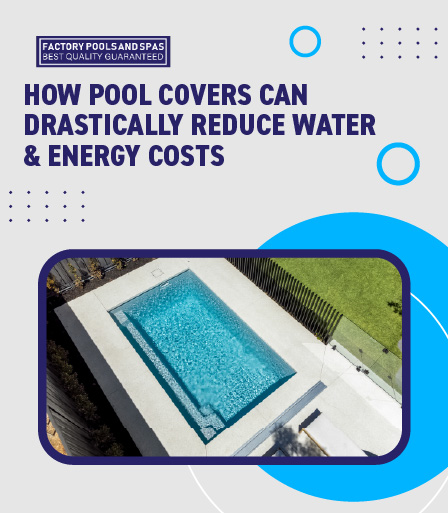
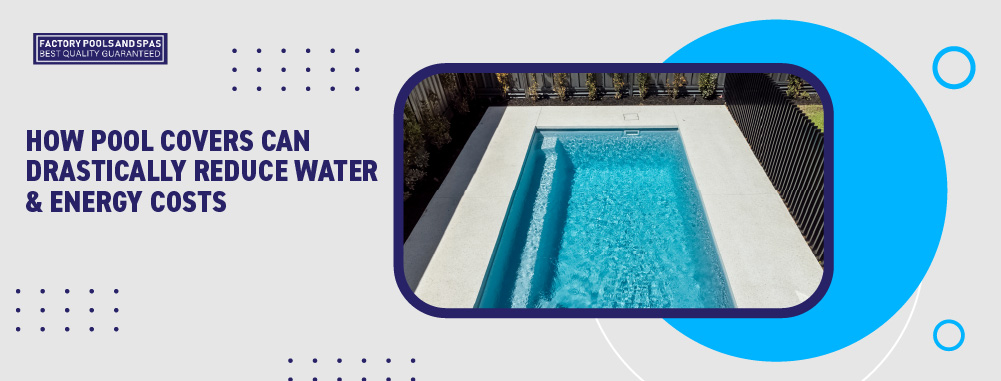
How Evaporation Contributes to Water Loss
The Impact of Evaporation
One of the primary reasons for water loss in a pool is evaporation. Without a cover, thousands of litres of water can disappear each month. The rate of evaporation is influenced by several factors:
Factors Affecting Evaporation
- Temperature – Warmer weather speeds up evaporation.
- Humidity Levels – Dry air absorbs moisture more quickly than humid air.
- Wind Speed – Breeze or strong winds carry water vapour away from the pool surface.
- Pool Surface Area – The larger the pool, the more water it loses through evaporation.
A pool cover significantly reduces evaporation, often by up to 95%. This translates to substantial water savings and fewer refills, making maintenance more convenient and cost-effective.
Energy Savings with Pool Covers
How Pool Covers Reduce Energy Costs
Heating a pool can be costly, particularly in cooler climates. Much of this heat escapes through evaporation and exposure to cool air. Pool covers help retain heat, reducing the energy needed to keep the water warm.
Benefits of Pool Covers for Energy Conservation
- Heat Retention – Acting as an insulator, a pool cover prevents heat from escaping, reducing heat loss by up to 70%.
- Lower Heating Demand – With less heat dissipating overnight, pool heaters work less, cutting energy consumption.
- Solar Heating – Solar pool covers absorb sunlight, transferring warmth into the water naturally and reducing the need for artificial heating.
By maintaining consistent water temperatures, pool covers allow pool owners to enjoy longer swimming seasons while significantly lowering energy expenses.
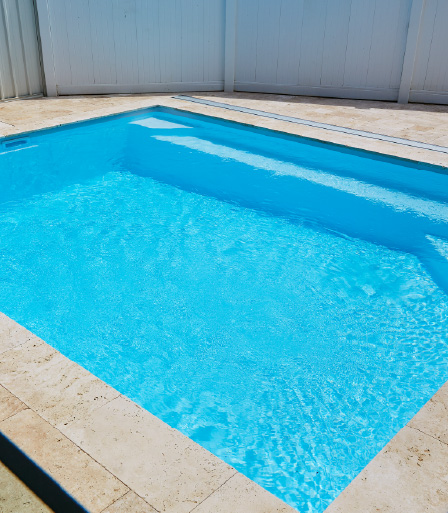
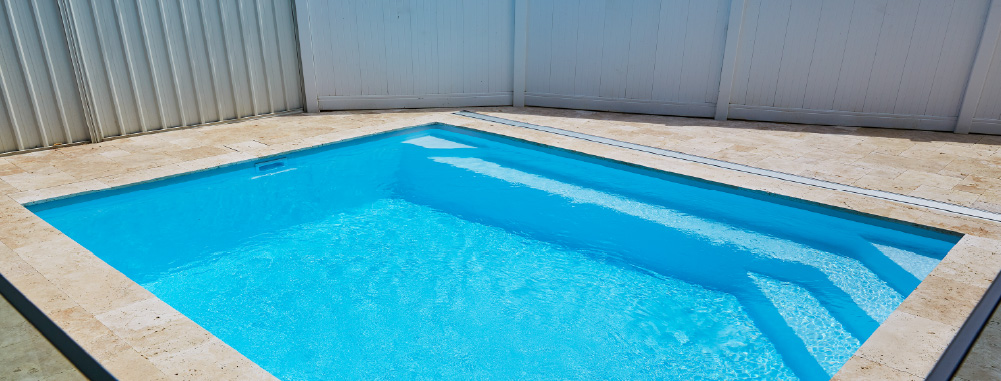
Reducing Chemical Costs
How Pool Covers Help Retain Chemicals
Pool chemicals are essential for keeping water clean and safe, but exposure to air, heat, and sunlight speeds up their breakdown. This means pool owners must replenish chemicals frequently—unless they use a pool cover.
Advantages of Pool Covers for Chemical Savings
- UV Protection – Shields chlorine and other sanitising agents from sunlight, slowing down chemical degradation.
- Prevents Algae Growth – By blocking sunlight, pool covers reduce algae formation, minimising the need for additional chemicals.
- Lowers Maintenance Costs – With fewer chemicals required, pool owners save money and effort on regular chemical treatments.
A pool cover helps stabilise chemical levels, keeping the water healthier and maintenance easier.
Minimising Debris & Reducing Filtration Costs
Keeping Your Pool Cleaner
An uncovered pool attracts dirt, leaves, and insects, increasing the burden on filtration systems. Using a pool cover helps keep debris out, reducing the strain on your pool’s filtration system.
Benefits of a Cleaner Pool
- Less Skimming & Cleaning – Pool covers prevent debris buildup, cutting down on manual cleaning efforts.
- Longer Equipment Lifespan – Reduced debris means less stress on the pool pump and filter, lowering the risk of damage.
- Lower Energy Use – With a cleaner pool, filtration cycles can be reduced, saving on electricity costs.
A well-covered pool remains cleaner for longer, requiring less maintenance and saving both time and money.
Types of Pool Covers
Choosing the Right Cover for Your Pool
Pool covers come in different varieties, catering to various needs and budgets:
Common Pool Cover Options
- Solar Covers – Made from plastic with air pockets, they capture and transfer solar heat into the pool while minimising evaporation.
- Thermal Covers – Insulated covers designed to retain heat, ideal for pools in cooler regions.
- Automatic Covers – Motorised covers that provide convenience and maximum efficiency in heat retention and water conservation.
- Winter Covers – Heavier-duty covers designed to protect pools during the off-season, reducing algae growth and debris buildup.
- Safety Covers – Designed to support weight, preventing accidental falls while also conserving water and reducing maintenance costs.
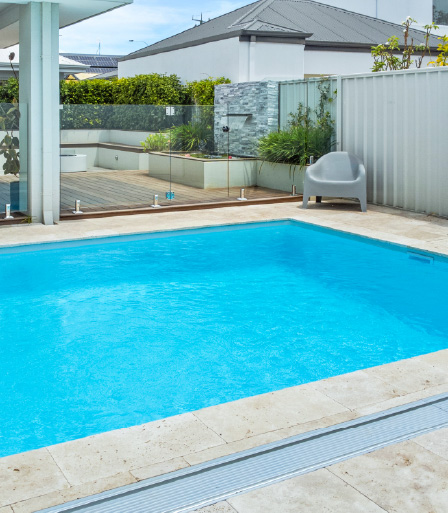
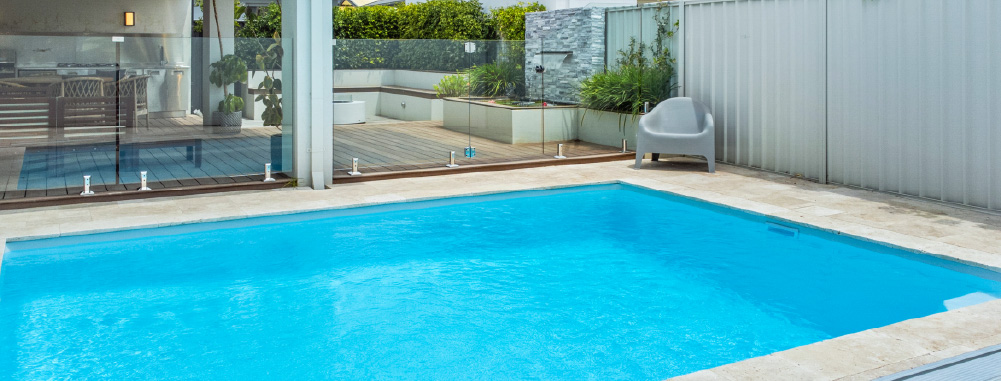
The Financial & Environmental Benefits
How Pool Covers Save Money & Conserve Resources
The cost-saving advantages of a pool cover extend beyond water and energy reduction. By minimising evaporation, cutting heating expenses, decreasing chemical usage, and lowering filtration costs, a pool cover can pay for itself over time.
Estimated Annual Savings
- Water Savings – Up to 50,000 litres saved per year for a standard-sized pool.
- Energy Savings – Pool heating costs reduced by 50-70%.
- Chemical Savings – Chemical usage cut by 30-50%.
- Filtration & Maintenance – Lower equipment strain leads to reduced maintenance and operational costs.
In addition to financial savings, pool covers also contribute to environmental conservation. Using less water helps preserve local resources, while reducing energy consumption leads to lower carbon emissions.
Choosing the Right Pool Cover
Factors to Consider
Selecting the ideal pool cover depends on factors such as pool size, climate, and budget. While automatic covers offer convenience, even a basic solar or thermal cover can lead to substantial savings.
To maximise benefits, ensure your cover fits your pool properly and is used consistently. Additionally, consider the material and durability of the cover, as some options provide better insulation or UV resistance. Investing in a high-quality cover may have a higher initial cost, but it will offer greater savings in the long run by improving energy efficiency and reducing maintenance needs. Research different brands and customer reviews to find a reliable option that suits your specific pool requirements.

